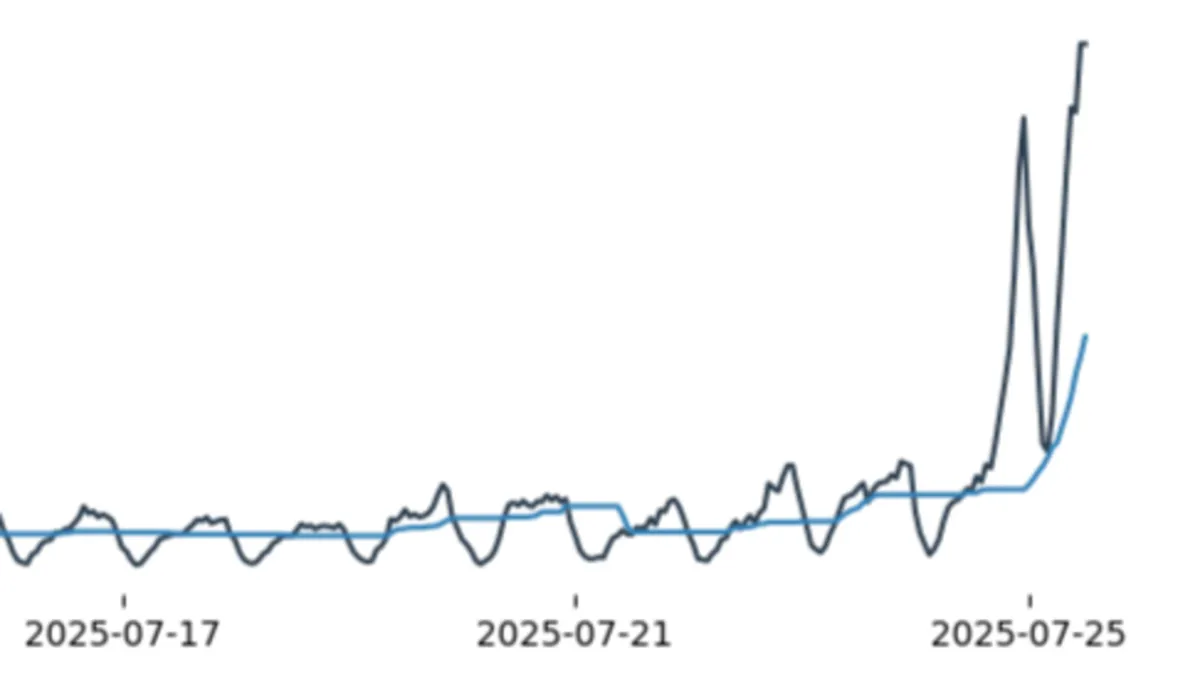
Proton VPN recorded a surge of more than 1,400% in UK signups within hours of the Online Safety Act taking effect on July 25, 2025, according to the company's announcement on social media. The spike represents a dramatic user response to new digital regulations - UK Online Safety Act - requiring robust age verification for accessing adult content online.
The dramatic increase in demand was announced via Proton VPN's official X account on Thursday evening, highlighting a significant shift in user behavior immediately following the law's activation. Unlike prior surges, such as the temporary spike in France following the introduction of restrictions on adult content access, this uptick has remained unusually high over several hours, suggesting a broader and more profound public concern.
The Online Safety Act 2023, which received Royal Assent on October 26, 2023, introduced sweeping changes to internet regulation in the UK. The UK government says the Act is designed to protect children by creating what Ofcom describes as "a new regulatory framework which makes platforms with links to the United Kingdom – including social media, search, and pornography services – legally responsible for keeping people, especially children, safer online."
 PPC LandLuis Rijo
PPC LandLuis Rijo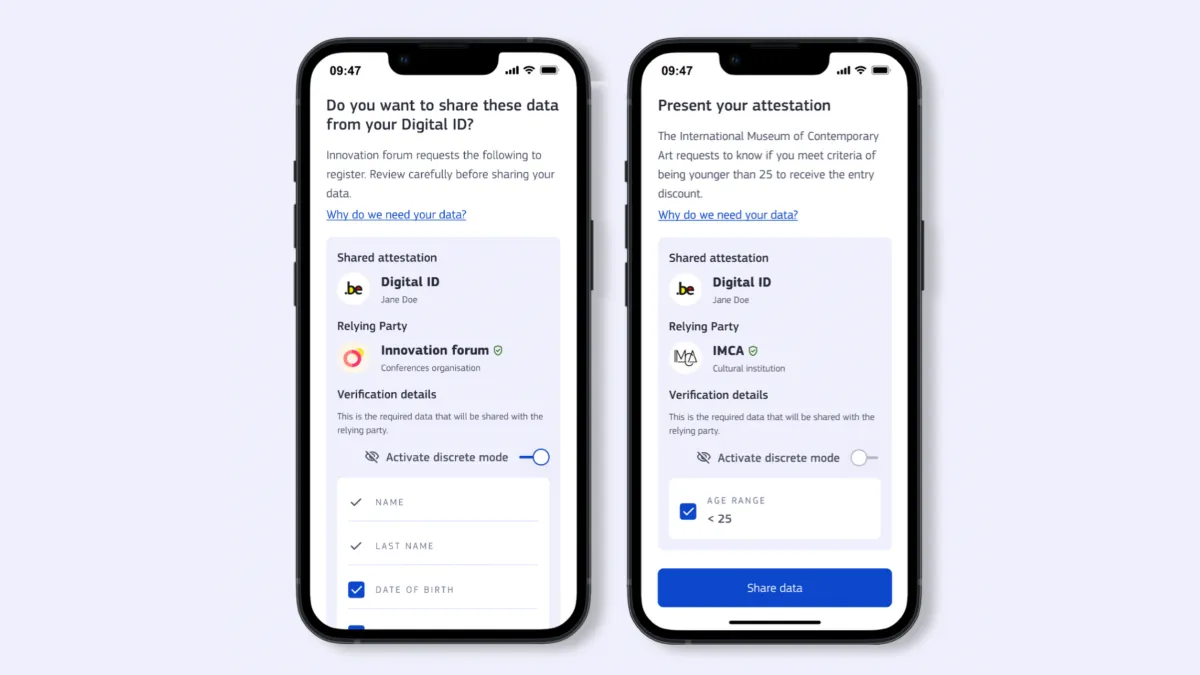
Technical enforcement mechanisms reshape digital landscape
Key provisions affecting adult content platforms became operational in stages throughout 2024 and 2025. According to government documentation, "platforms that publish their own pornographic content (known as Part 5 services) must take steps immediately to introduce robust age checks that meet Ofcom's guidance" after the corresponding duty came into force on January 17, 2025.
Those who fail to take action could face hefty fines if they fail to implement a form of ID-check, such as facial recognition, credit or debit card checks, or other forms of ID. The age verification requirements specifically target what the legislation defines as "regulated provider pornographic content." Services must demonstrate they have implemented "robust age checks" to prevent children from accessing adult material.
The timing correlation between the VPN signup surge and the Online Safety Act's enforcement suggests users are seeking technical workarounds to avoid new verification requirements. VPN services allow users to mask their geographic location and appear to be browsing from different countries with varying regulatory frameworks.
For now, Proton VPN's surge serves as a barometer of public sentiment: British users are turning to privacy tools not just to bypass adult content restrictions, but to shield themselves from what they increasingly perceive as state overreach.
Subscribe the PPC Land newsletter ✉️ for similar stories like this one. Receive the news every day in your inbox. Free of ads. 10 USD per year.
Platform responses demonstrate compliance challenges
Major social media platforms have implemented various approaches to meet the new requirements. Bluesky announced on July 10, 2025, that it will use Epic Games' Kids Web Services (KWS) to give UK community choices about how to verify their age through methods like credit card verification and face scans. For people who are under 18 or don't want to go through this process, the platform will make adult-appropriate content inaccessible and disable features like direct messaging.
The affected sites aren't always the most obvious, with Bluesky and Reddit now requiring age verification due to their hosting of some adult content. Major adult content platforms have implemented direct compliance measures. Pornhub, operated by Aylo, now displays age verification prompts to UK users stating "To continue, we are required to verify that you are 18 or older, in line with the UK Online Safety Act" and directing users to create accounts with identity verification services.
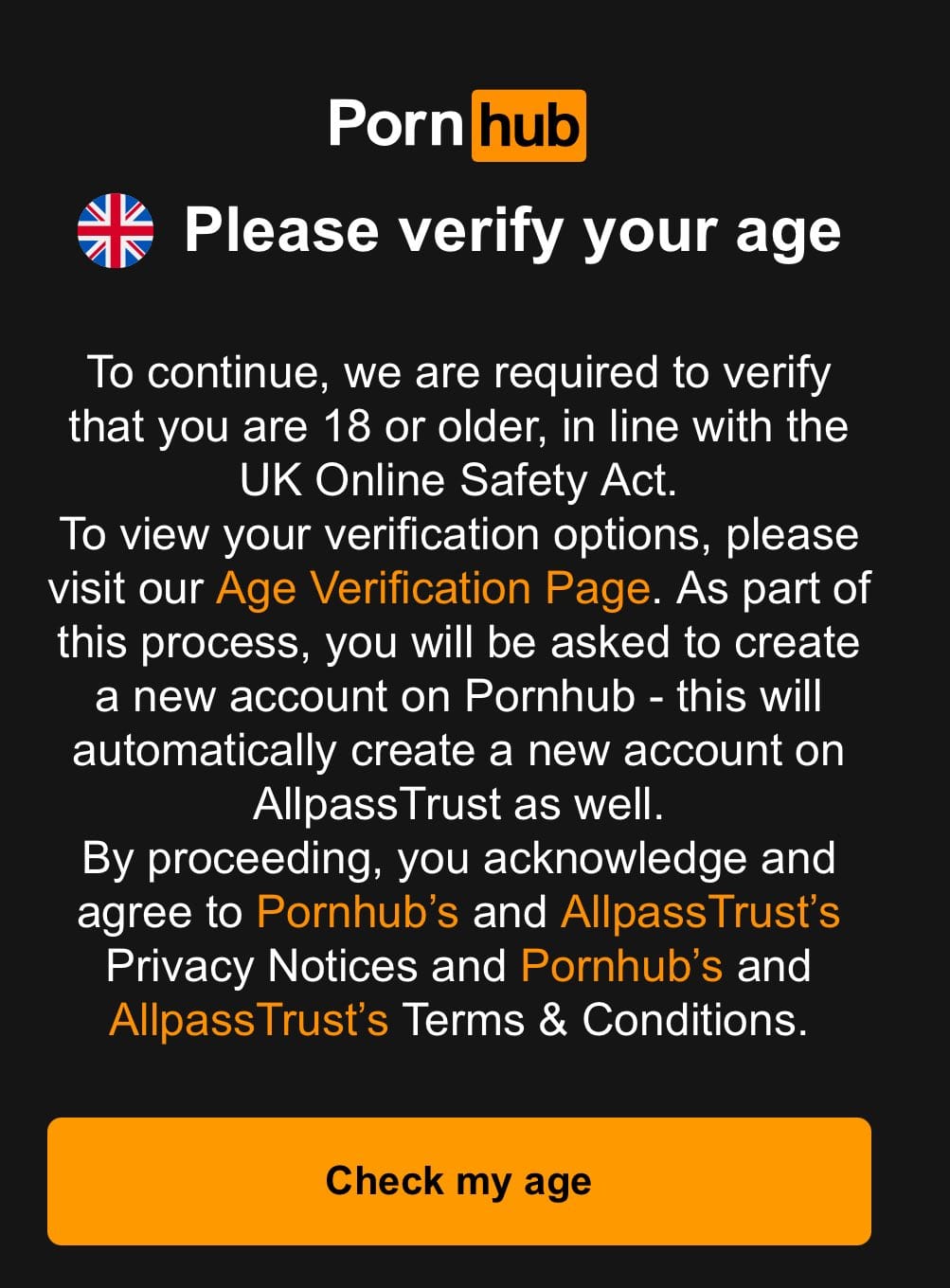
Reddit will begin demanding age verification from UK-based users seeking to view "mature content" through a partnership with Persona, a third-party age verification specialist. UK users who attempt to access age-gated subreddits will now be prompted to verify their age through one of two methods: Selfie Upload using biometric technology to estimate age, or Government ID Upload of documents such as a driver's license or passport.
The implementation has created significant user resistance. Privacy-conscious users have documented various workarounds, including using VPNs to connect from outside the UK, third-party clients that don't implement restrictions, and browser modifications to bypass client-side verification checks.
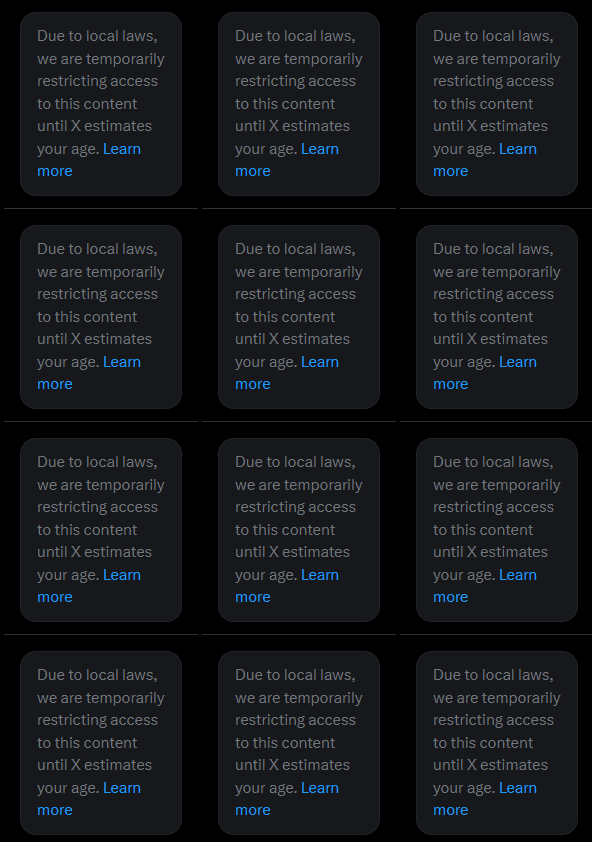
Cloudflare blocking creates new enforcement layer
Concurrent with the Online Safety Act implementation, Cloudflare has begun blocking access to approximately 200 pirate streaming websites for UK users, representing the first time a major content delivery network has participated in UK anti-piracy efforts beyond traditional ISP blocking.
Users attempting to access certain blocked domains now see "Error 451 – Unavailable for Legal Reasons" messages, marking a significant expansion in anti-piracy enforcement. Cloudflare appears to be using geo-blocking in the UK, as some VPN users will soon find out. Users attempting to gain access to domains currently blocked by Cloudflare, using a VPN server in the UK, will be greeted by Cloudflare's Error 451 blocking notice instead.
The involvement of Cloudflare in blocking over 200 pirate sites has been described as "unexpected." This means that these sites will be unavailable to anyone using a UK IP address, regardless of who their ISP is, or whether they're using a VPN. The blocking order appears to stem from legal action by the Motion Picture Association, representing film and streaming giants Disney+, Netflix, and Warner Bros.
This development creates additional complexity for VPN users, as traditional circumvention methods become less effective when content delivery networks implement geo-blocking at the infrastructure level.
Privacy concerns drive sustained adoption patterns
The sustained nature of the VPN surge distinguishes it from previous temporary spikes. Proton VPN reported that signups surged by over 1,400% in the UK just minutes after the Online Safety Act rolled out, with the company noting that "Unlike previous surges, this one is sustained, and is significantly higher than when France lost access to adult content."
Considering the spike in interest in VPNs across the UK starting from July 25, many Britons are likely to be getting ready to bypass these checks with such software. However, Ofcom is strongly suggesting against their use, telling the BBC that it will be illegal for platforms to encourage the use of VPNs and reminding parents that if their children use a VPN to bypass age checks, they "would not be able to benefit from the protections of the Online Safety Act."
Privacy-conscious consumers will most likely opt for using VPNs, which allow internet users to circumvent location-based checks. But, for those who do not, websites and social media companies may become unwilling custodians of very sensitive data.
Jason Nurse, a cyber expert at the University of Kent, expressed concerns about data protection implications: "These sites will be entrusted with storing large amounts of personally identifiable information from potentially vast segments of the population. How can we be confident this data won't be misused? Such centralised databases create attractive targets for attackers seeking information for blackmail, extortion or other malicious purposes."
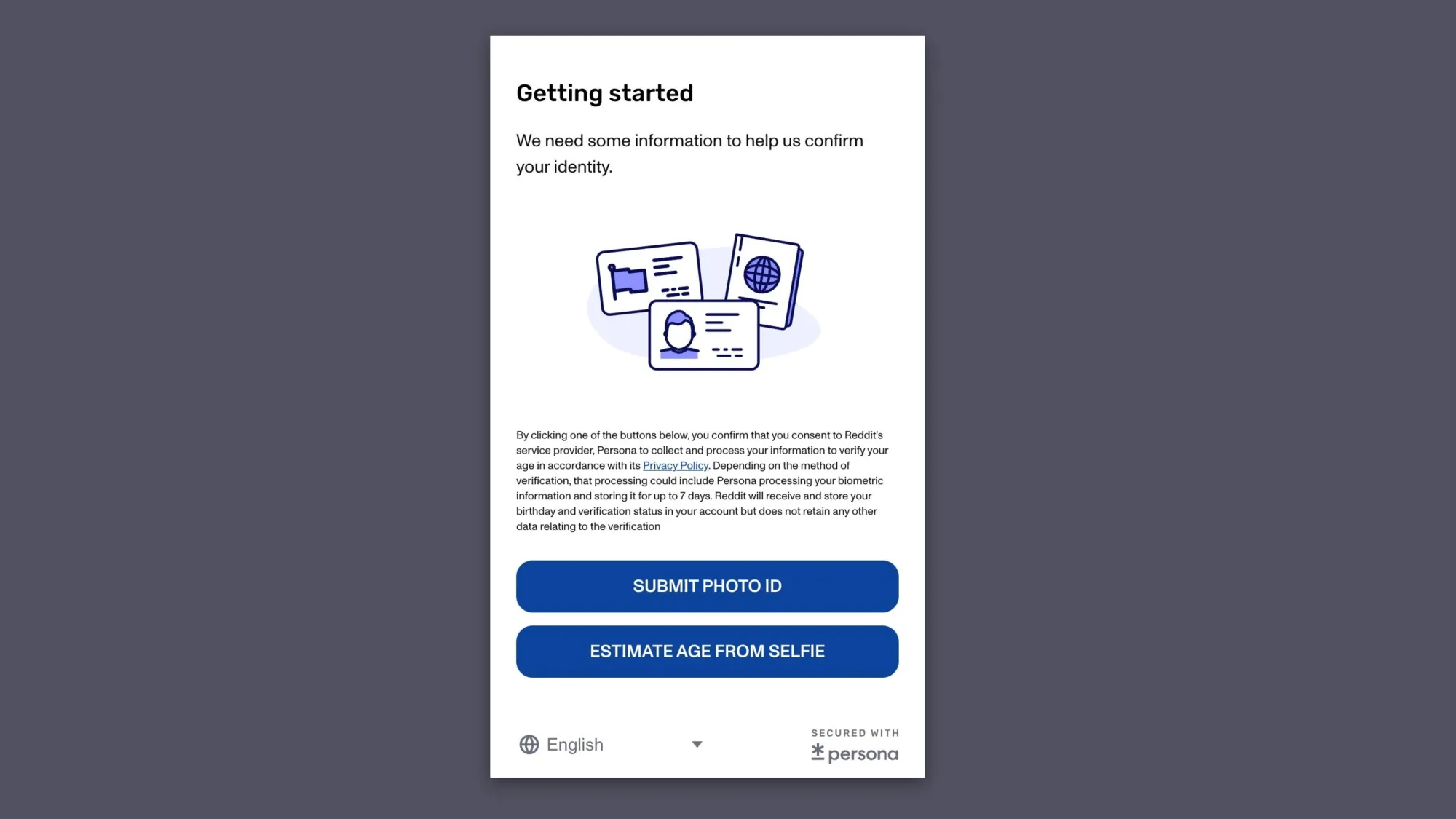
Legal challenges and implementation resistance
The regulatory framework operates on a phased implementation schedule, but faces significant legal challenges. The Wikimedia Foundation announced on July 17, 2025, that it will challenge the UK's Online Safety Act Categorization Regulations in court, arguing these regulations threaten Wikipedia's volunteer contributor model.
High Court hearings in London will examine whether Wikipedia faces Category 1 classification under rules designed for social media platforms. The legal challenge represents the first court action against the Online Safety Act's categorization framework since regulations took effect in February 2025.
Public opposition to the legislation continues to grow. A petition calling for the repeal of the Online Safety Act has gathered over 251,000 signatures, arguing that "the scope of the Online Safety act is far broader and restrictive than is necessary in a free society" and that "the definitions in Part 2 covers online hobby forums, which we think do not have the resource to comply with the act and so are shutting down instead."
Subscribe the PPC Land newsletter ✉️ for similar stories like this one. Receive the news every day in your inbox. Free of ads. 10 USD per year.
Enforcement powers and compliance costs
Ofcom possesses substantial enforcement powers under the new regime. According to the legal framework, "companies can be fined up to £18 million or 10 percent of their qualifying worldwide revenue, whichever is greater." The regulator can also pursue criminal action against senior managers who fail to comply with information requests.
In the most egregious cases, executives or managers may face personal liability. In extreme cases, Ofcom can implement business disruption measures, requiring "payment providers, advertisers and internet service providers to stop working with a site, preventing it from generating money or being accessed from the UK."
 PPC LandLuis Rijo
PPC LandLuis Rijo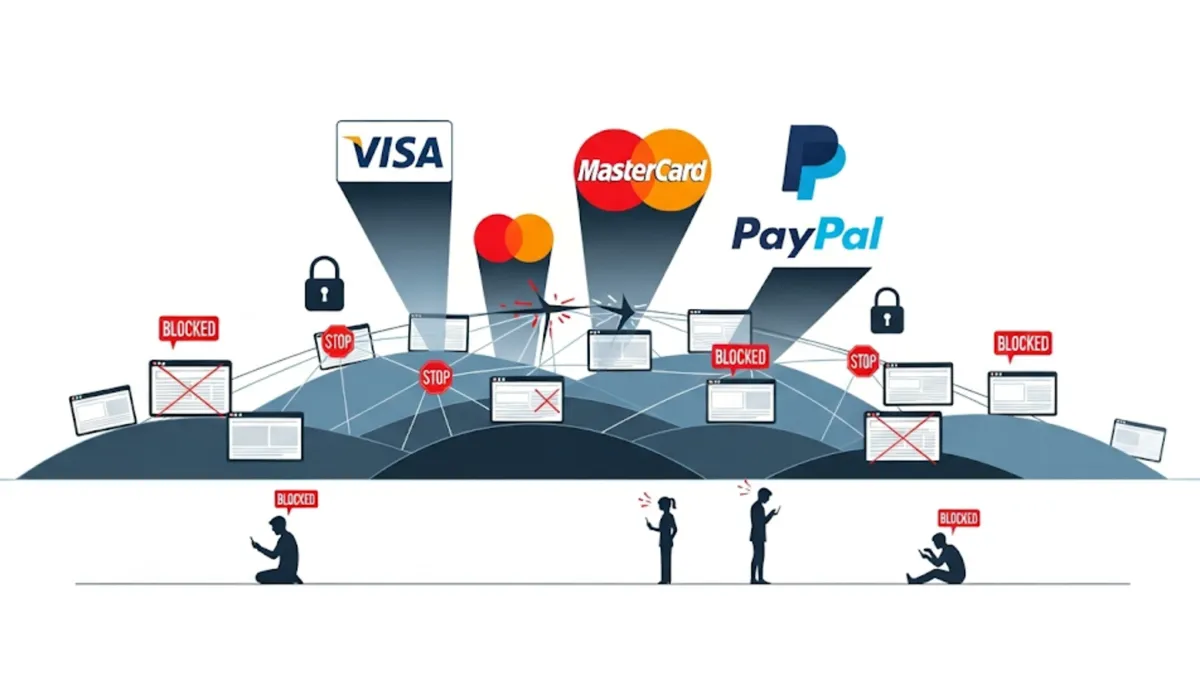
The implementation costs create particular challenges for smaller platforms and nonprofit organizations. Compliance costs associated with age verification systems create potential barriers to entry for smaller platforms, while established platforms can distribute compliance costs across large user bases.
Global regulatory context and precedent setting
The UK's approach influences international digital regulation. The regulations demonstrate expanding regulatory approaches to content platforms globally. European regulations like the Digital Services Act established similar frameworks for platform oversight, though with different scope definitions.
The European Data Protection Board has established comprehensive principles for age verification that aim to ensure children's safety online does not come at the expense of privacy rights and data protection standards. The framework requires organizations to implement the least intrusive measures available while maintaining effectiveness, with age assurance systems that should not enable additional tracking or profiling of users.
France has implemented similar restrictions, with the country's privacy authority declaring enhanced surveillance systems neither necessary nor proportionate for age verification, citing GDPR violations and surveillance concerns. These developments demonstrate the complex intersection between child safety objectives and privacy protection requirements across different jurisdictions.
Marketing industry implications
The implementation of the Online Safety Act creates significant implications for the digital marketing ecosystem. Age verification requirements fundamentally alter user onboarding processes, potentially affecting conversion rates and user acquisition costs for platforms operating in the UK market.
The requirement for platforms to implement robust verification systems introduces additional friction in user journeys that could impact advertising effectiveness and audience targeting capabilities. Marketers must now consider compliance obligations when planning campaigns that might reach UK audiences, particularly for platforms hosting adult-oriented or potentially harmful content.
The VPN surge itself represents a shift in user behavior that could affect geo-targeting accuracy and campaign attribution. As users increasingly mask their locations to bypass verification requirements, traditional location-based targeting and measurement may become less reliable for UK audiences.
Technical circumvention and enforcement challenges
Despite regulatory efforts, technical circumvention methods continue to evolve. Users have documented multiple workarounds including VPN usage, third-party clients, and browser modifications that exploit the client-side nature of verification checks.
As a digital rights expert at the Electronic Frontier Foundation explained, IP addresses aren't the only method online services use to track down user location, suggesting that platforms may implement additional technical measures to detect and prevent circumvention attempts.
The effectiveness of these enforcement mechanisms remains uncertain. Many have questioned the effectiveness of the Act itself, noting that a virtual private network (VPN), which hides a device's IP address and allows users to connect to other servers typically overseas, would allow users to circumnavigate the restrictions.
Subscribe the PPC Land newsletter ✉️ for similar stories like this one. Receive the news every day in your inbox. Free of ads. 10 USD per year.
Future implementation phases
The implementation timeline continues throughout 2025 and beyond. Categorised services face additional transparency and accountability requirements, with Ofcom expected to publish a register of categorised services in summer 2025. Further codes of practice consultations are scheduled for early 2026.
Ofcom will publish final transparency reporting guidance in July 2025, having consulted on this guidance in 2024. The Online Information Advisory Committee will publish its first report no later than November 2026.
The sustained nature of the VPN signup surge suggests this represents a permanent behavioral shift rather than temporary user curiosity. As implementation phases continue, similar patterns may emerge as additional platform categories face compliance requirements under the expanding regulatory framework.
Timeline
- October 26, 2023: Online Safety Act receives Royal Assent
- January 17, 2025: Age verification duties for Part 5 services take effect
- February 2025: European Data Protection Board releases age verification guidance
- March 17, 2025: Ofcom gains full enforcement powers for illegal content duties
- April 24, 2025: Protection of children codes laid in Parliament
- July 10, 2025: Bluesky announces UK age verification implementation
- July 17, 2025: Wikipedia files legal challenge against categorization rules
- July 24, 2025: Deadline for children's risk assessments
- July 25, 2025: Proton VPN reports 1,400% signup surge from UK users
- 2026: EU follows UK with age verification in 2026
Subscribe the PPC Land newsletter ✉️ for similar stories like this one. Receive the news every day in your inbox. Free of ads. 10 USD per year.
Key Terms Explained
Online Safety Act
The Online Safety Act 2023 represents the UK's comprehensive legislative framework for internet regulation, establishing statutory duties for platform providers to protect users from harmful content. The Act creates legally binding obligations for social media companies, search services, and pornography platforms with UK connections, marking a shift from voluntary industry standards to mandatory compliance requirements with criminal penalties for violations.
Age Verification
Age verification refers to the technical and procedural mechanisms platforms must implement to prevent children from accessing adult content online. Under the Online Safety Act, these systems must meet robust standards defined by Ofcom, requiring platforms to verify users' ages through reliable methods before granting access to pornographic material, representing one of the Act's strongest child protection measures.
Proton VPN
Proton VPN serves as the reporting entity for the dramatic user behavior shift following the Online Safety Act's implementation. As a privacy-focused virtual private network service provider, Proton VPN enables users to mask their geographic location and encrypt internet traffic, positioning itself as a tool for overcoming censorship and privacy threats while maintaining user anonymity online.
Ofcom
Ofcom functions as the UK's independent communications regulator and the designated enforcement authority for the Online Safety Act. The organization possesses extensive powers including financial penalties up to £18 million or 10% of worldwide revenue, criminal prosecution capabilities for senior managers, and business disruption measures including payment processor restrictions for non-compliant platforms.
VPN Surge
The VPN surge describes the 1,400% increase in UK-based signups to Proton VPN services immediately following the Online Safety Act's enforcement provisions taking effect. This sustained user behavior pattern differs from temporary spikes and suggests a permanent shift in how UK internet users approach content access when faced with mandatory verification requirements.
Adult Content
Adult content encompasses pornographic material subject to the Online Safety Act's age verification requirements, specifically targeting what the legislation defines as "regulated provider pornographic content." Platforms publishing or displaying such content must implement robust age checks and comply with Ofcom's guidance to prevent children's access while maintaining service for verified adult users.
UK Users
UK users represent the target demographic for Online Safety Act protections and the primary group affected by new verification requirements. The legislation applies extraterritorially, meaning international platforms serving UK audiences must comply with British regulations regardless of their operational base, creating compliance obligations based on user location rather than corporate jurisdiction.
Enforcement Powers
Enforcement powers describe Ofcom's comprehensive regulatory toolkit for ensuring Online Safety Act compliance, including financial penalties, criminal prosecutions, and business disruption measures. These powers extend beyond traditional content moderation to include technical compliance verification, senior manager accountability, and systematic platform assessment capabilities designed to ensure proactive rather than reactive safety measures.
Platform Providers
Platform providers encompass the broad category of online services subject to Online Safety Act obligations, including social media companies, search engines, file-sharing services, dating platforms, and pornography sites. These entities bear legal responsibility for implementing safety systems proportionate to their service type, user base, and harm risk levels under the new regulatory framework.
Regulatory Framework
The regulatory framework represents the comprehensive system of duties, enforcement mechanisms, and compliance requirements established by the Online Safety Act. This structure operates through phased implementation, codes of practice, threshold conditions for different service categories, and escalating enforcement measures designed to create a proportionate but effective system for protecting UK internet users from online harms.
Subscribe the PPC Land newsletter ✉️ for similar stories like this one. Receive the news every day in your inbox. Free of ads. 10 USD per year.
Summary
Who: Proton VPN reported the surge; UK internet users seeking to circumvent age verification requirements; platforms including Bluesky and Reddit implementing compliance measures; Ofcom as the enforcement authority
What: A 1,400% increase in VPN signups from UK users following implementation of Online Safety Act age verification requirements for adult content platforms, alongside platform compliance measures and legal challenges
When: July 25, 2025, coinciding with key enforcement provisions of the Online Safety Act taking effect, with ongoing implementation phases continuing through 2025 and 2026
Where: United Kingdom, affecting both domestic and international platforms serving UK users, with global implications for digital regulation approaches
Why: Users appear to be using VPN services to bypass mandatory age verification requirements for accessing adult content, while platforms implement compliance measures to avoid substantial penalties under the UK's new digital safety legislation

